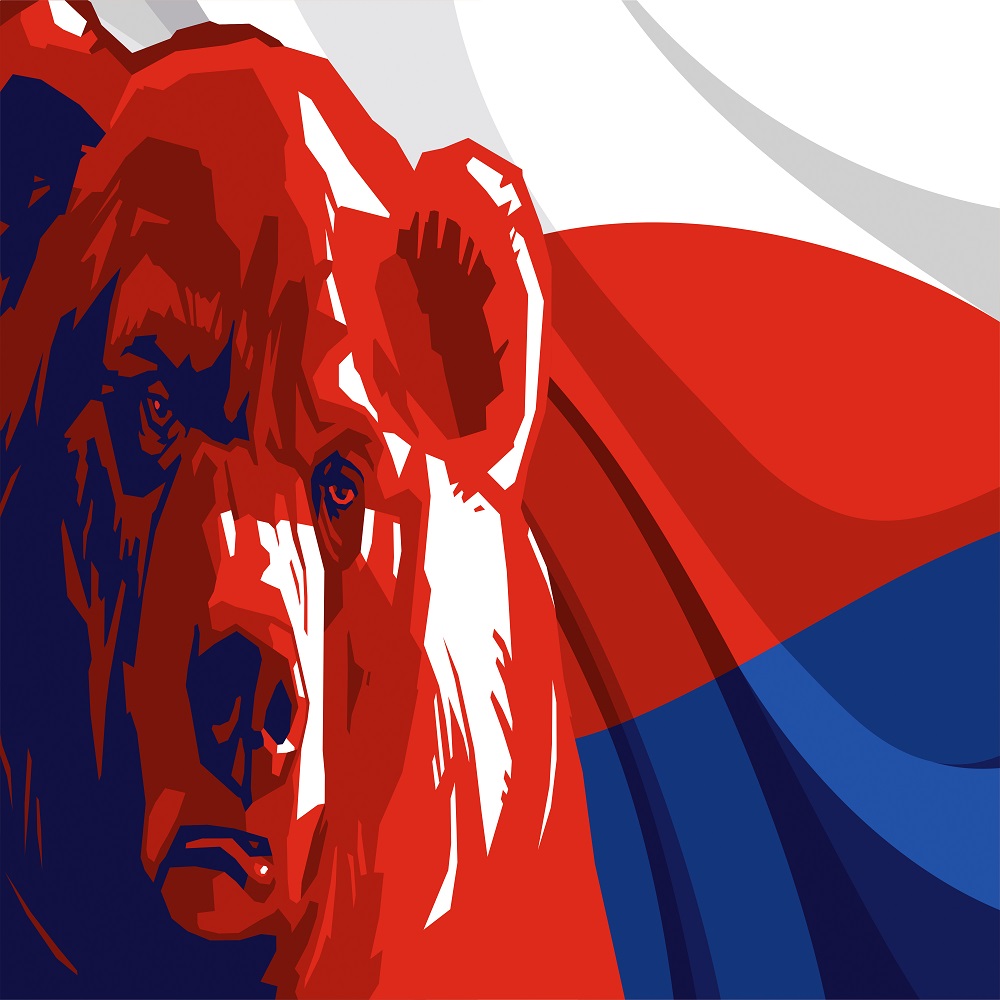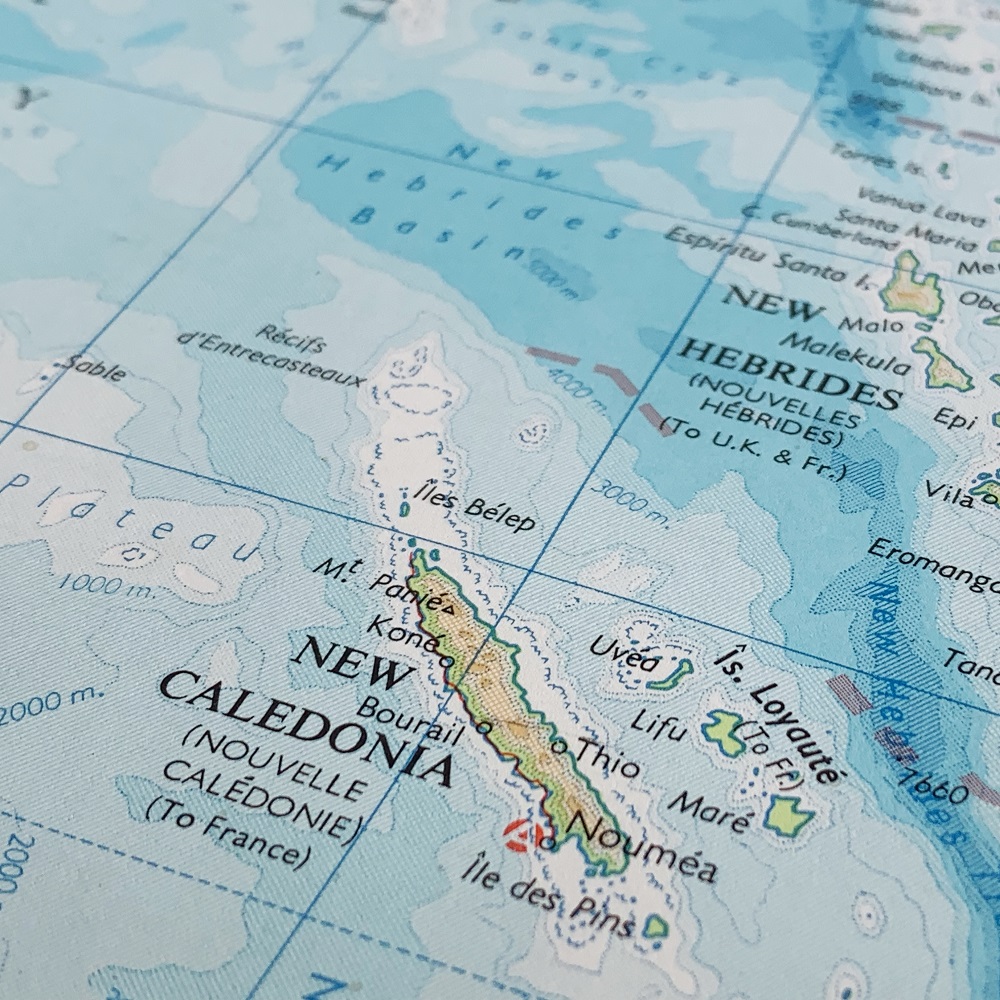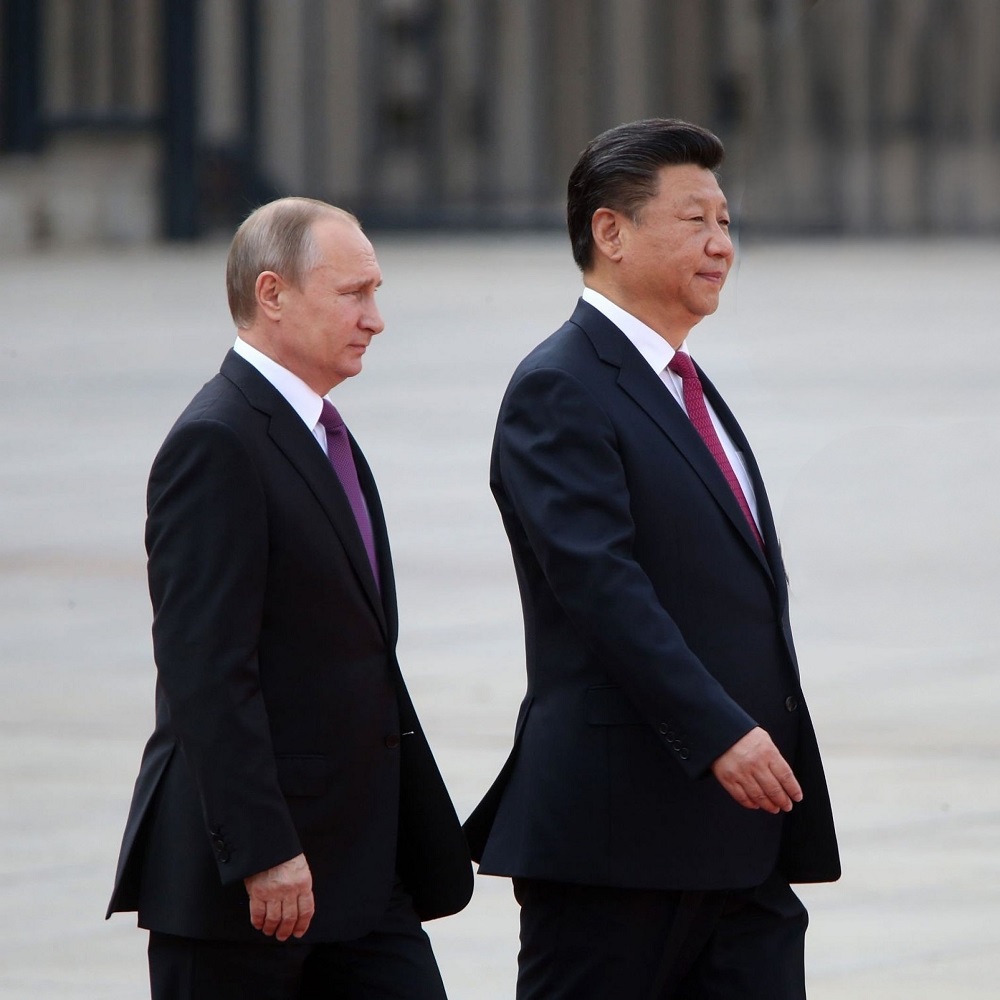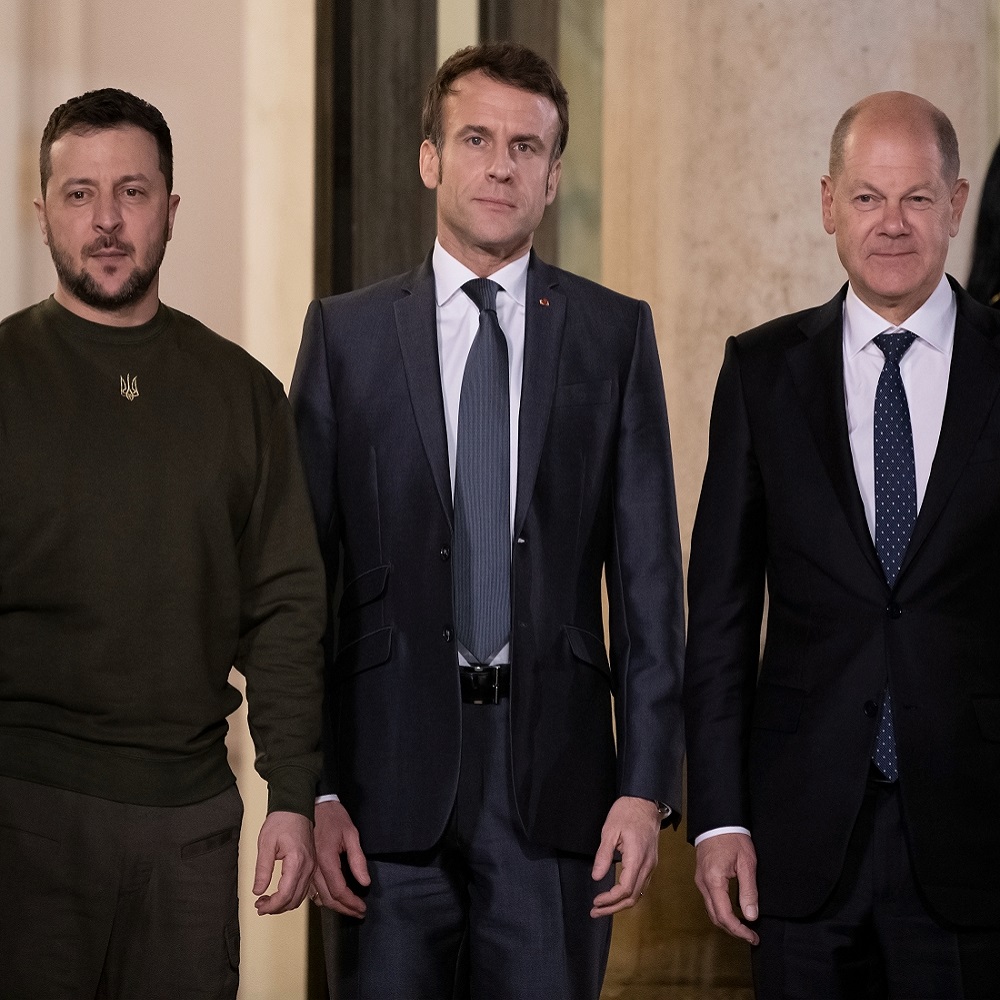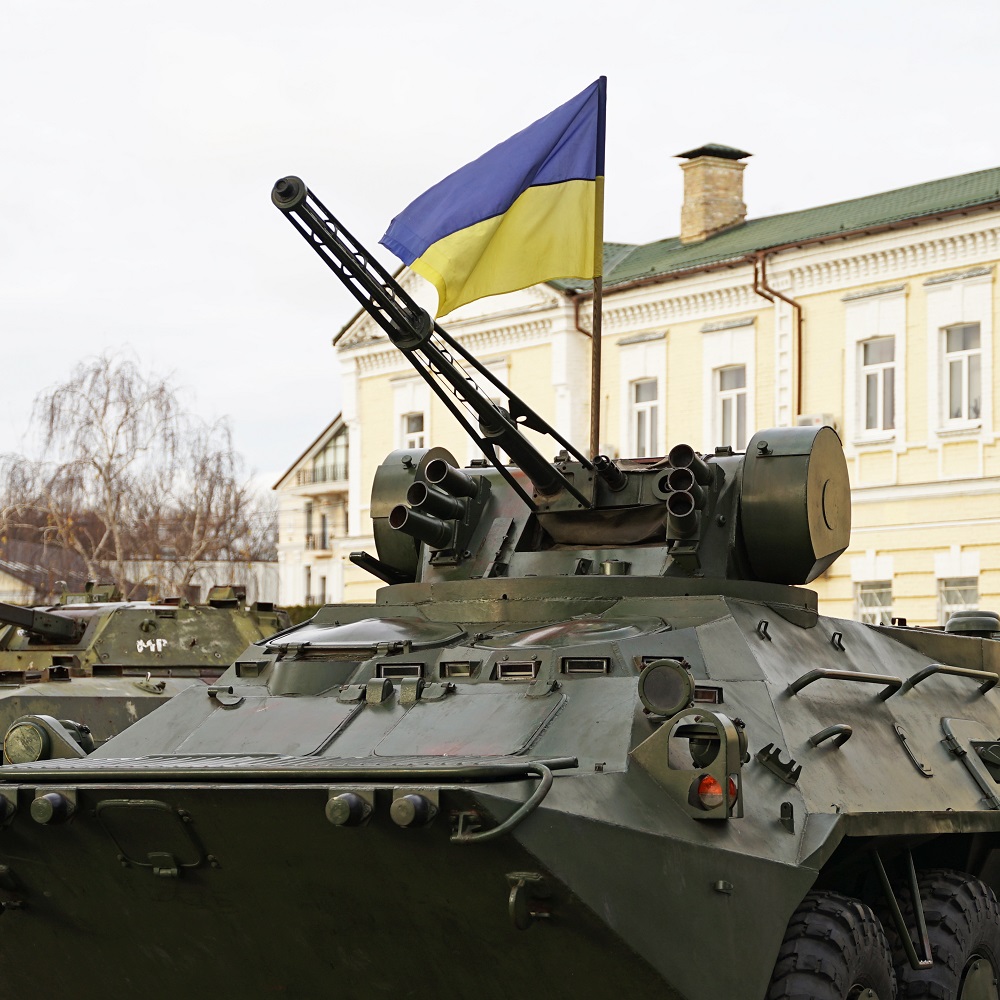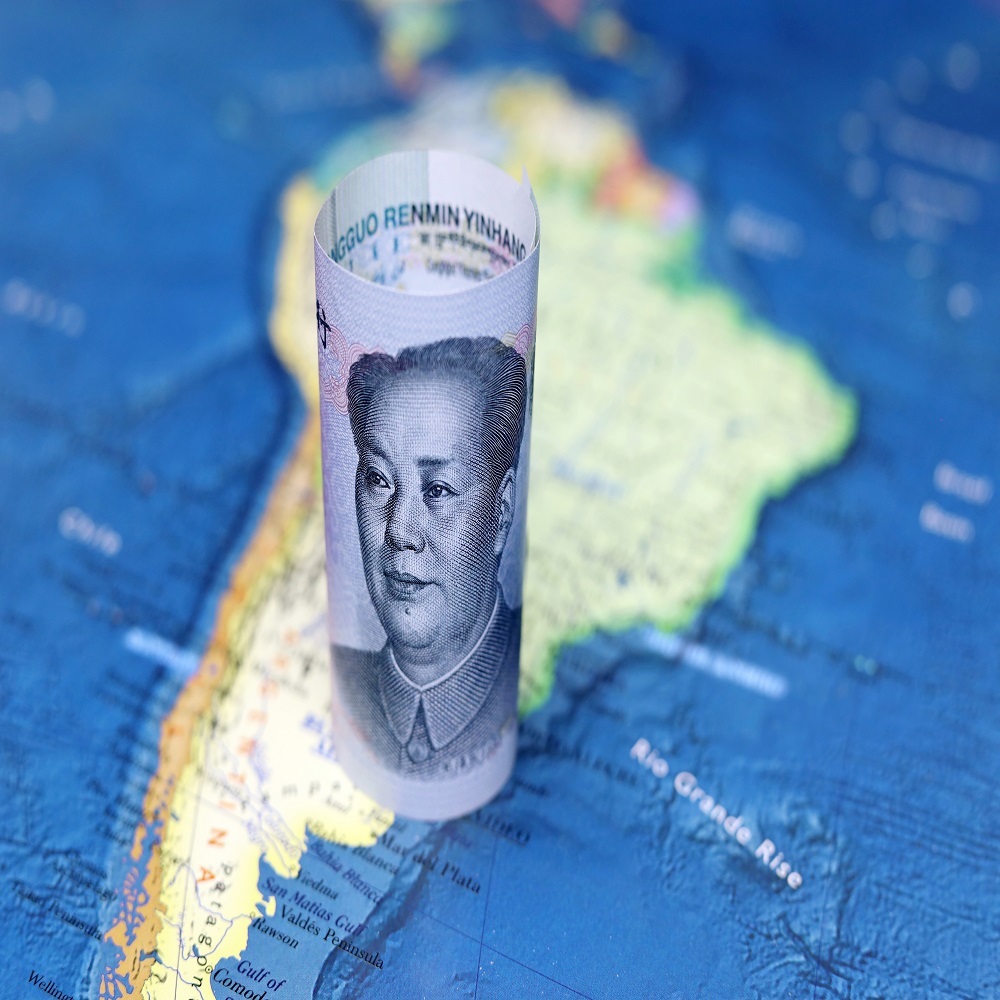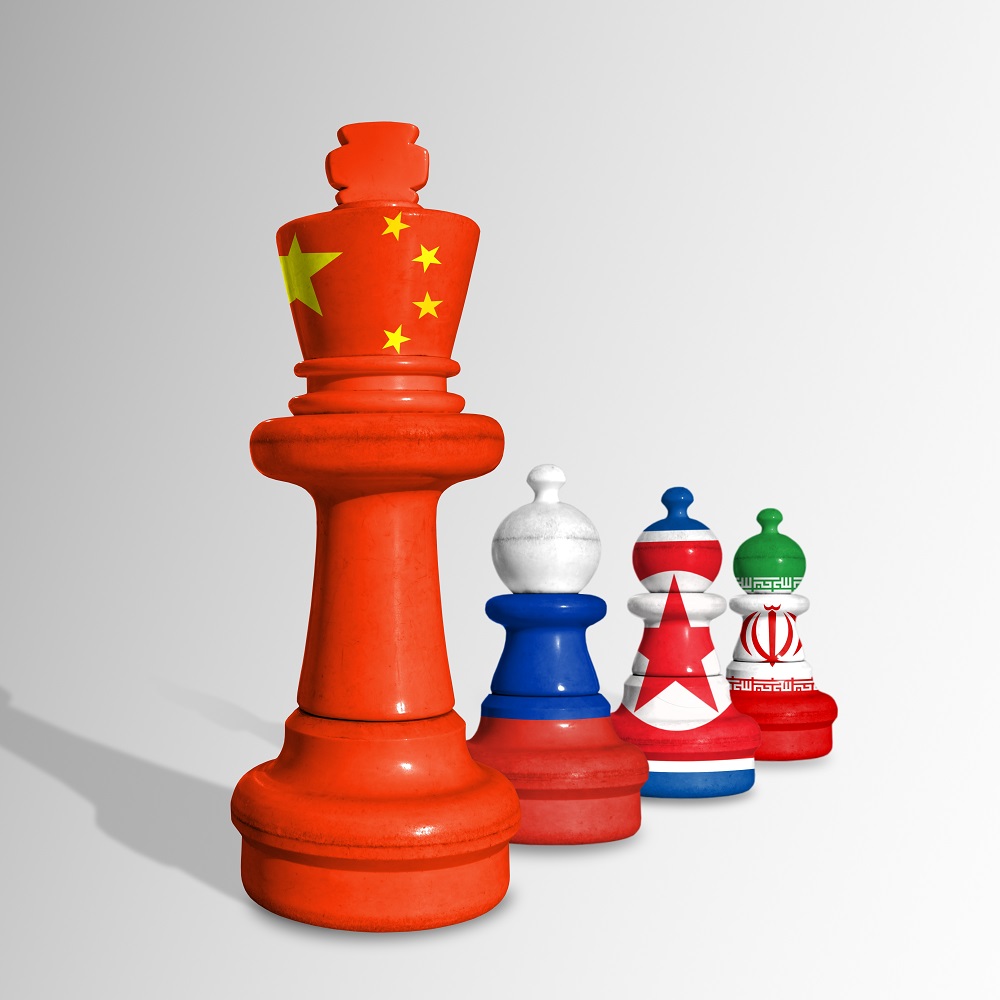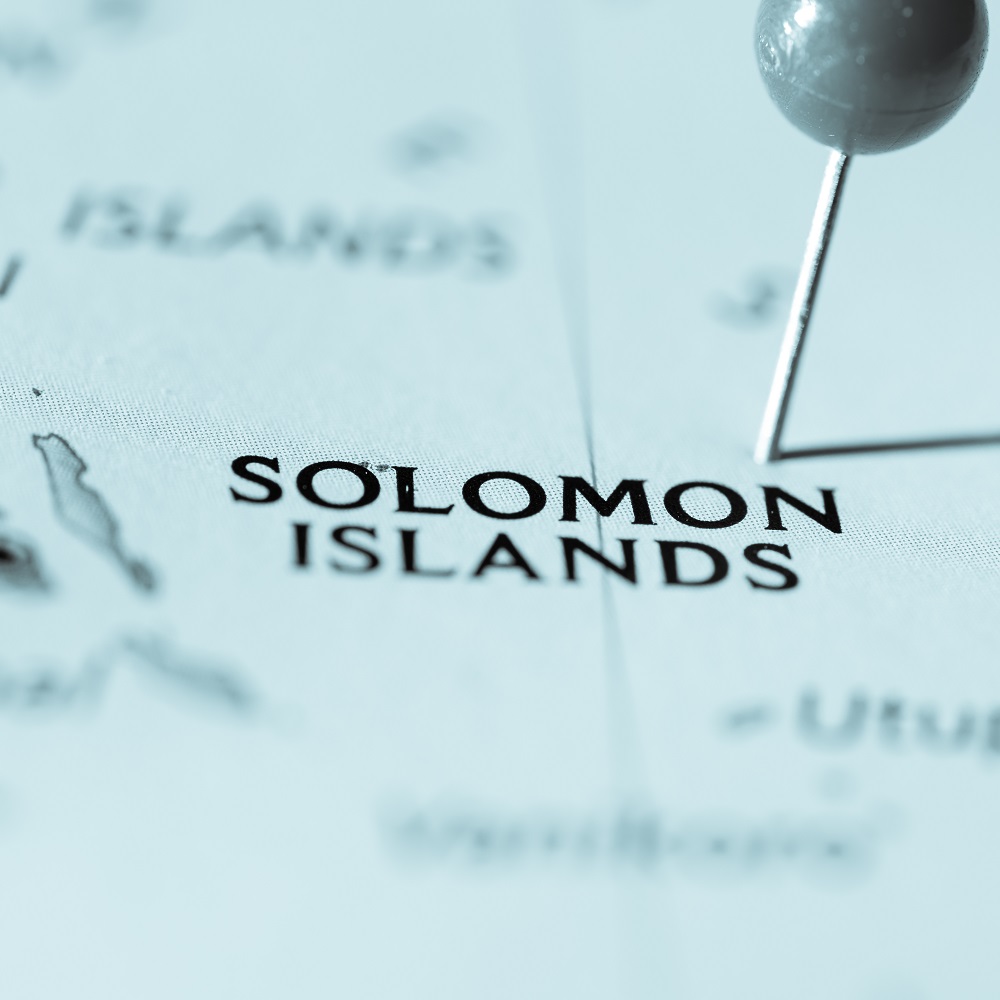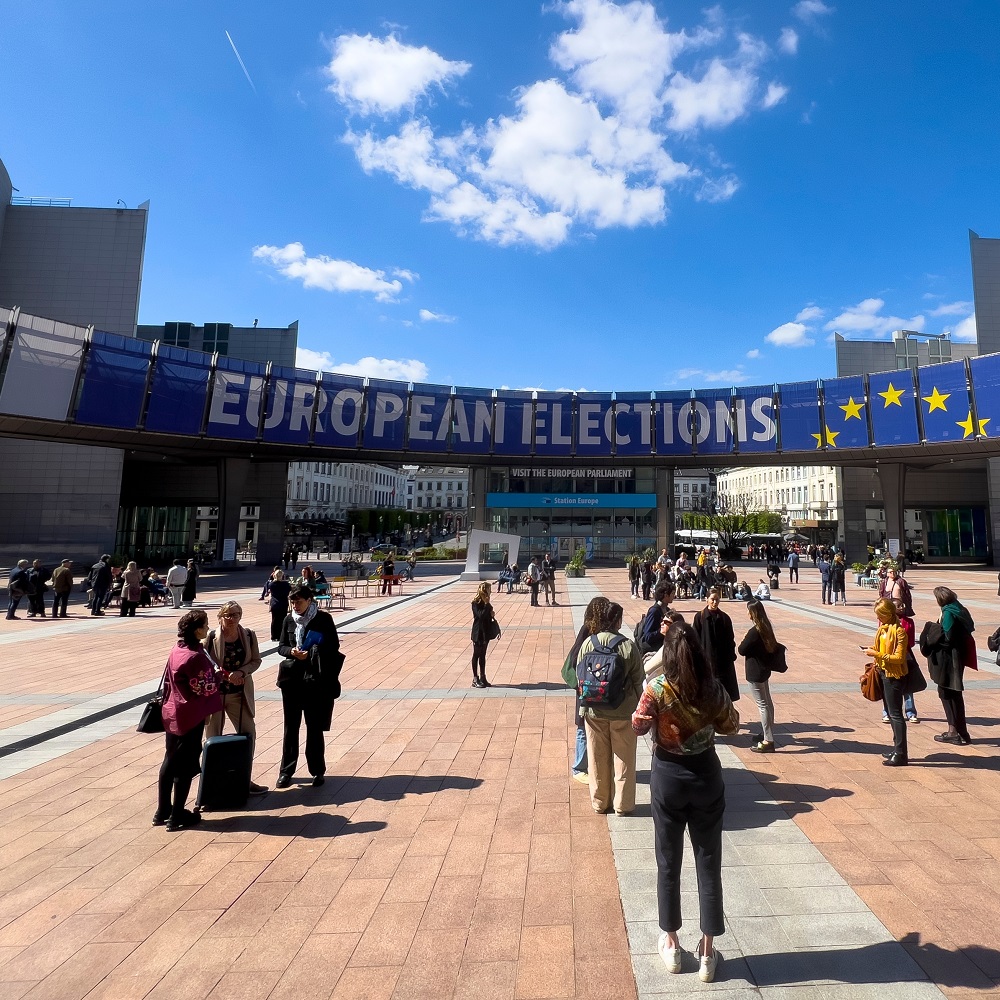The War in Ukraine among contemporary Armed Conflicts
by Anton Bebler
한국어로 읽기Leer en españolIn Deutsch lesen
Gap
اقرأ بالعربيةLire en françaisЧитать на русском
Abstract
The war in Ukraine is the biggest, bloodiest and longest war in Europe since 1945. Its initial stage holds similarities with several other armed conflicts and wars in the last 50 years on Cyprus and in the territories of the former Soviet Union and the Socialist Federal Republic of Yugoslavia (SFRY). Among the cases in ex-Yugoslavia the greatest similarity is seen with the war in Croatia (1991–1995). These conflicts stemmed from almost simultaneous breakdowns of two multinational ‘socialist federations’ and their communist regimes. The dissimilarity of the second stage of the war in Ukraine and the war in Croatia is primarily due to the processes of NATO and EU enlargement coupled with the USA’s policy of using NATO enlargement and Ukraine as tools to harm and weaken Russia. The conflict about Ukraine developed into an indirect war between Russia and the US-led West, where Ukraine is the West’s proxy and the main victim. The final outcome of the war in Ukraine will be decided on the battlefield and not around a diplomatic table. Still, it will be very different from that in Croatia. Responsibility for the war in Ukraine and its consequences must be shared between the two direct belligerents, the co-responsible USA and other NATO members.
Introduction
Among about four dozen contemporary wars, the armed conflict in Ukraine since 2014 stands out as an exceptional event. It involves in its second stage four nuclear powers –one as a direct belligerent and three as providers of many-sided assistance to the second belligerent, with the presence of military personnel of all four nuclear powers on the territory of Ukraine. The war has been the biggest, bloodiest and longest war in Europe since 1945. It has also produced a strong impact on Europe and the broader international community.
According to two measures (at least), the war in Ukraine has been exceeded by a number of other wars since 1945, namely those occurring in Asia and Africa. In terms of mortality, it has been exceeded by the wars in Korea, Vietnam, Algeria, Sudan, Rwanda, Burundi and Iraq. In terms of duration, it is unlikely to be longer than the wars in Vietnam, Algeria, Sudan and Afghanistan. Among all these armed conflicts, the war in Ukraine may be sharply distinguished by the reverse ratio between military and civilian mortality.
In the European framework, the central trigger of the first stage of the war in Ukraine was similar to what caused the armed conflicts and outright wars occurring between 1974 and 1999 on Cyprus, in Moldova, Georgia, the Russian Federation, Azerbaijan as well as on the territory of the SFRY. Among the former, the first stage of the war in Ukraine most resembled the war in Croatia (1991–1995). The war in Croatia, which started prior to its international recognition, and the war in Ukraine 22 years after its recognition as an independent state, display a number of similarities that not accidental. The second stage of the war in Ukraine has had several similarities with the war in the Federal Republic of Yugoslavia (1999) which ended up with forceful separation of Kosovo from Serbia.
The similarities
The wars in Croatia and Ukraine involved two adversary pairs of neighboring and partly overlapping Slavic nations. These wars unfolded in the territories of two defunct ‘socialist federations’ – the SFRY and the USSR. The causes of both wars were closely related to the almost simultaneous breakdowns of these two federations in 1991 and the demise of their communist regimes that had preceded and caused the breakdowns.
The institutional structure of the SFRY was modelled after and closely resembled the structure of the older ‘socialist federation’, the USSR. Shared features of the two included the division of each federation into full-fledged republics and autonomies. Most or all of these federal units were ethnically designated. The minorities of the biggest ethnic groups (Serbs and Russians) were not accorded autonomy within other republics. In both cases, war followed the declarations of ‘sovereignty’ and ‘autonomy’ and referenda organized by some members of the Serbian community in southwest Croatia and some members of the Russian and Russian-speaking community living in Eastern Ukraine. In each case, the central governments refused to negotiate with the insurgents and decided to suppress them militarily. The armed conflicts in Croatia and Ukraine developed into partly different combinations of civil and interstate wars. The civil war component referred to an armed conflict between the ultranationalist regime in the former second-most populous republic on one hand, and part of the biggest national minority related to the largest ethnic group in the former federation, on the other. The civil war deepened the divisions based on loyalty within both the Serbian community in Croatia and the Russian community in Ukraine. Each war was fought almost exclusively on the territory of the former second-most populous republic, which suffered the most. In both wars, the two sides were responsible for gross violations of international humanitarian law. International sanctions were applied in these two wars.
The causes of each war were tangibly related to profound geopolitical changes underway in Europe about 35 years ago. These changes entailed the slackening and termination of the Cold War between two military-political blocs and the wave of liberal-democratic transformation of political systems in Eastern Europe. Over the span of 3 years, about 30 different state entities declared their sovereignty in the area of 3 ‘socialist federations’ (Yugoslavia, Soviet Union, Czechoslovakia). Of these, 23 entities survived and soon gained universal recognition as sovereign states, including Croatia and Ukraine.
The specificity of the war in Ukraine
Ancestors of today’s Russians and Ukrainians shared in the distant past close to 400 years of common history in Kievan Rus. In the XIII century this large state formation was destroyed by the invasion of Tatars-Mongols. The subsequent centuries-long domination of Lithuanian and Polish feudal rulers over the ancestors of today’s Ukrainians contributed greatly to their cultural and language distancing from the Russians. In 1648, the Cossack ancestors of some of today’s Ukrainians rebelled against Polish feudal rule, in 1654 begged for protection and voluntarily submitted themselves to Moscow Tsardom. For two and a half centuries, until 1917 they remained as part of the Russian empire, named Ruthenia and later Malorossiya. In 1918, an independent state was proclaimed under the new name Ukrainian People’s Republic. The name Ukraine remained under the Bolsheviks and in 1922 Soviet Ukraine became a constituent republic of the Soviet Union. Over several decades, the territory of Soviet Ukraine was more than doubled by Moscow in several successive stages in 1920–1922, 1939–1940, 1945–1947 and 1954. This was accomplished by including into it the lands of Novorossiya, with millions of Russian and Russian-speaking people in the East and South, as well as annexed parts of Poland, Czechoslovakia, Romania and part of Moldova in the West. In all of these cases, this was done without their population’s consent. In 1992, all these territorial gains became parts of independent Ukraine within its internationally recognized borders, whereas the collective rights of the Russian and Russian-speaking population were left unprotected. From 1945 for more than four and a half decades Ukraine enjoyed Moscow’s symbolic gift – the status of a UN founding member although it had been a constituing part of another UN founding member (USSR). When Ukraine, at Moscow’s initiative attained independence it did not have to apply for UN membership which from then on it deserved.
Divergent political and economic developments in the two independent states exposed a number of different interests and of problems unresolved at the time of separation. These issues, in somewhat different combinations during the two stages of the war contributed to three groups of conflictual relations: (1) between the Russian Federation and Ukraine, (2) inside Ukraine and (3) between the Russian Federation and the West, primarily USA.
The non-recognition of collective minority rights by the Ukrainian authorities became a growing political problem with the rise of Ukrainian ultranationalism. Combined with divergent attitudes in Western and Eastern parts of the country concerning Ukraine’s relations with Russia, EU and NATO, language-related problems contributed tangibly to political explosions in Ukraine in February/March 2014.
Since 1991, two processes have altered the geopolitical map of Europe. These are the Eastward expansion of the US-dominated NATO along with the closely intertwined enlargement of the European Union. The first stage of these two processes in 1990–1991 – the absorption of Eastern Germany into both organizations – had no impact on the internal crisis in Yugoslavia, including the conflict in Croatia. Two decades later, however, the process of NATO expansion had already reached the borders of both Ukraine and Russia, thereby adding a very real extra-regional component to the conflict in and about Ukraine.
For over two decades, one of the USA’s geostrategic goals has been by fostering ‘color revolutions’ to bring about regime change in the post-Soviet space, including Ukraine and also Russia. By using Ukraine as a tool, the USA has endeavored to harm and weaken Russia. Under US pressure and notwithstanding German and French objections, at the NATO summit held in Bucharest in April 2008 Ukraine was promised membership in the alliance, yet without stating a date. Openly and strongly opposed by Russia, this decision unleashed a chain of events, 6 years later leading to a war in Ukraine. The European Union and its policy of Eastern neighborhood negatively contributed to these developments. The prospect of an association agreement with the EU deepened the internal political conflict in Ukraine and motivated a mass protest movement that was exploited in February 2014 to stage a US-guided coup d’état in Kyiv.
The combination of Ukraine’s promised membership in NATO and the new regime in Kyiv fully dependent on the USA foretold that Russia would certainly lose its old naval base in Sevastopol, for which it had paid high rent since 1992. Moreover, as a NATO naval and air base, Sevastopol would pose a direct threat to Russia and its geopolitical position in the Black Sea and Mediterranean area. To thwart this threat, lightly armed detachments of Russian marines, already legally stationed on Crimea, were ordered to move in unmarked uniforms to take control of the entire peninsula. They did so without facing any resistance, on Kyiv’s strict orders, from the about 22,000 Ukrainian troops or inflicting any casualties. The Ukrainian officialdom then simply vacated Crimea. This takeover was soon followed by a successful referendum accompanied by international observers on approving Crimea’s legal separation from Ukraine and it rejoining Russia. Moscow thus took back Nikita Khrushchev’s present to Ukraine on the occasion of the 300th anniversary of its unification with Russia.
First stage of the war in Ukraine
Closely related to the dramatic developments in Kyiv, there were uprisings in several Ukrainian cities and proclamations of ‘‘sovereignty’’ and ‘‘autonomy’’ in Lugansk and Donetsk. These uprisings largely featured protests against the discriminatory measures adopted by the new authorities against the Russian and Russian-speaking population. The ultranationalist regime in Kyiv responded on 13 April 2014 by branding the protesters ‘‘terrorists’’, declaring a “wide anti-terrorist operation” and entrusting the Ukrainian Army to carry it out. This military operation launched the first stage of the war in Ukraine. In its attacks on the Donbas autonomists, the Ukrainian Army employed bombers, tanks, armoured vehicles and artillery while battalions of Ukrainian ultranationalist volunteers with neo-Nazi leanings and financed by Ukrainian oligarchs used artillery and light weapons. On the defending side, there were about 35,000 members of the territorial people’s militias of the Donetsk and Lugansk People’s Republics as well as Russian and other (including Serbian) volunteers. The Russian Federation offered multi-sided support to the two besieged republics, encompassing financial, material, humanitarian and military assistance. Russian professional military personnel were integrated into the local militias and did not operate as separate and regular units of the Russian Army. At the same time, the US and British armed forces offered very sizeable material and other military assistance to the Ukrainian Army, also involving thousands of advisors and instructors. In numbers, they were comparable to the Russian military personnel on the other side of the frontline.
By February 2022, this armed conflict had led to 14,000 to 20,000 dead. Two armistice agreements, Minsk 1 and Minsk 2, did not halt the Ukrainian shelling of Ukrainian territory, which was responsible for thousands of casualties among the civilian population of the two self-proclaimed republics. These attacks continued for more than 9 years, accompanied by gross violations of international humanitarian law.
In February 2015, Petro Poroshenko, the President of Ukraine signed the Minsk 2 agreement. It was co-signed by the leaders of Germany, France and Russia and unanimously adopted as a resolution by the UN Security Council, thereby becoming part of international law. The Minsk 2 agreement provided for peaceful resolution of the conflict in Donbas. Nonetheless, Petro Poroshenko and his successor Volodimir Zelenski refused to implement most of Ukraine’s 12 obligations, including the key provisions under which Ukraine was to grant constitutionally guaranteed autonomy to the Russian and Russian-speaking population in Donbas. In addition, Zelenski reneged on his pre-election promise that saw him win the election in 2019 and did not stop the war.
Second stage of the war in Ukraine
On 21 March 2021, Zelenski blatantly violated the Minsk 2 agreement and international law by ordering the Ukrainian Army to liberate the territories of the two republics and Crimea. The bulk of the Ukrainian Army was then relocated to their vicinity, clearly visible by Russian satellites. Instead of peaceful resolution of the conflict, Zelenski, no doubt with the USA’s full approval, thus decided on full-scale military suppression of the Donbas autonomists and on reconquering Crimea, well aware that it would provoke a strong reaction from Russia. On 16 February 2022, upon his order the Ukrainian Army initiated the second and much more violent stage of the war. From that date on, the intensity of Ukrainian shelling started to grow from several tens to 1,500 explosions daily.
Combined with movements of Ukrainian troops, this strongly indicated that a massive attack was coming as part of implementation of the March 2021 order. It was very similar to the Georgian offensive against the self-proclaimed Republic of Southern Ossetia on 7 August 2008. This escalation was no doubt coordinated with US President Joe Biden, who publicly predicted that Russia would invade on 16 February 2022.
Ukraine’s stepping up the level of violence successfully provoked a predictable Russian response. On the political and legal levels, this entailed the Russian Federation’s recognition of the two republics as independent states, signing two agreements on friendship, cooperation and mutual assistance, accepting their pleas for assistance and protection in line with Art. 51 of the UN Charter and invoking the Responsibility for Protect. In the latter the Russian Federation used a very similar justification as did NATO in 1999 for its aggression against the Federal Republic of Yugoslavia. On the military level, Putin was faced with the real prospect of Ukraine quashing the two client Russian-speaking parastates. This would have submitted their discriminated Russian and Russian-speaking majority population to retribution by the Ukrainian ultranationalist and assimilationist regime, causing it to flee en masse across the border. He later explained that moral duty is higher than legality. Putin could not, also for domestic reasons, afford a humiliating political defeat similar to that suffered by Slobodan Milosevic in Croatia in August 1995. Unlike in August 2008 in Georgia, he did not wait for an all-out Ukrainian attack. Putin knew full well that stronger Western sanctions than those currently in place would follow, even if Russia’s response to the Ukrainian offensive were only moderate.
Probably on the basis of a faulty assessment of both Ukraine’s capacity and determination to resist and the West’s response, he precipitously and knowingly in violation of international law ordered a ‘special military operation’ with an invasion of Ukraine on February 24, 2022, by a limited contingent of Russian land forces. This move was combined with extensive destruction of the Ukrainian air force, the air defense system, and other military infrastructure. Ignoring an axiom of military science, an invading force of some 90,000 Russian land troops was sent against the Ukrainian Army thrice superior in numbers. It was also grossly insufficient and unprepared to accomplish the officially declared task of “demilitarizing” and “denazifying” entire Ukraine. In spite of its shortcomings, this force managed to swiftly occupy additional 15% or so of Ukrainian territory (some as a diversion and only temporarily) and effectively protected the two republics. It additionally established and secured a land bridge between Crimea and Donbas, made the Azov Sea part of Russia’s internal waters, took control of the largest European nuclear power station at Zaporizhie, and deprived Ukraine of its stocks of plutonium and uranium. These stocks would have been sufficient to make Ukraine the world’s fourth-strongest nuclear power. The latter was an effective response to Zelenski’s earlier declaration that Ukraine was intending to again acquire nuclear weapons. Preventing this dangerous prospect certainly served as an additional and important incentive for Putin’s decision.
For USA, the by far most frequent transgressor of international law, provoking Russia into an act of aggression fitted nicely with the their strategic goal. Russia’s invasion of Ukraine provided a perfect occasion for demonizing and isolating it internationally and for uniting the West under USA’s guidance on imposing on Russia an unprecedented array of drastic economic and other sanctions. These punitive measures were expected to quickly ruin the Russian economy, hopefully bring down Vladimir Putin’s regime, defeat Russia militarily without losing American lives, and cause the fragmentation of Russia into several states (as elaborated earlier publicly by Zbigniew Brzezinski and the RAND Corporation). However, these hopes have not materialized. Moreover, the effects of the Western sanctions proved to be more harmful to the EU economies than to Russia while in no way helping Ukraine.
The two wars compared
Still officially undeclared by both direct belligerents, the war in Ukraine is already twice as long as the war in Croatia, and is still ongoing. There are also other important differences caused by the mismatch between Croatia and Ukraine in the size of their population and territory (approximately 1:10), and by the different configuration and extent of the theatres of war. Further, there are differences in the size and structure of the armed forces involved, in the disparities between Serbia’s and Russia’s military capabilities compared to the respective capabilities of Croatia and Ukraine. The war in Ukraine in its second stage is also unlike the war in Croatia due to the massive use of particular weapons systems (notably drones and missiles).
Vast differences also exist in the direct involvement of international organizations and other external actors in the two wars. In the autumn of 1991, the European Economic Community (EEC) sent Croatia its first mission of white-clad and unarmed observers who as impartial intermediaries tried unsuccessfully to stop the armed clashes between the Croatian police and Serbian insurgents. The United Nations established UNPROFOR (UN Protection Force) in February 1992, operating from Zagreb. It was followed by UNCRO (UN Confidence Restoration Operation in Croatia) in 1995–1998, UNTAES (UN Transitional Administration in Eastern Croatia) in 1996–1998, and UNMOP (UN Mission of Observers in Prevlaka) in 1996–1997. For several years, the UN-supported International Conference on Former Yugoslavia was active operating from Geneva. In comparison, there have been no UN or EU peacekeeping or observer missions in Ukraine. The UN General assembly has adopted a number of resolutions related to the war in Ukraine. In several resolutions it deplored and condemned Russia’s invasion with huge majorities for and only five votes against. The OSCE had no observer missions in Croatia, but deployed two such missions in Ukraine, notably the sizeable OSCE Special Monitoring Mission from 2015 until March 2022. In addition, the OSCE played an active role in facilitating the Minsk 1 and Minsk 2 ceasefire agreements.
Extra-regional states were not openly involved in the war in Croatia. In 1991–1992, the Croatian forces included 456 foreign fighters (British, French, German et.al.), accompanied by about 2,000 private American military instructors. On the other hand, Ukraine has received huge support from several dozen foreign states, in particular the USA, as well as other NATO and EU members in the form of heavy arms, ammunition, training, intelligence, economic and humanitarian assistance. According to the Russian Ministry of Defense, since 2022, 13.387 foreign fighters, mercenaries and volunteers joined the Ukrainian Army of whom 5.962 lost their lives. Polish citizens have been most numerous in both categories – 2.960 enlisted and 1.497 dead. They are followed by Americans and others. This strong external involvement transformed the local war into an extra-regional armed conflict between Russia and the US-led collective West, with Ukraine acting and sacrificing its soldiers and itself as the West’s proxy.
The war in Croatia and its outcome were closely linked with the war in neighboring Bosnia and Herzegovina, while there has been no similar regional linkage of the war in Ukraine. The war in Ukraine has also had by far a bigger international political and economic impact on other countries, not only in Europe, than the war in Croatia.
Most importantly, there are enormous differences between the two wars in the number of dead (at least 1:25), number of refugees and displaced persons (approximately 1:25), and extent of destruction and amount of economic damage (at least 1:20). The war has inflicted considerably greater damage on Ukraine as a state and on Ukrainian society than the war did on Croatia. Since 2014, the population under Kyiv’s control has so far been reduced by at least one-third and the territory by close to one-fifth. It is estimated that the Ukrainian Army, National Guard and volunteers have suffered well over 400,000 deaths. Ukraine has also lost a good deal of its industrial capacity, agriculture, energy generation and critical infrastructure. The war’s continuation suits the USA’s geostrategic, chiefly anti-Russian objectives, whereas Ukraine is paying a horrible price for them. The dragging on war of attrition is sapping Ukraine’s ability to sustain itself, at least in its already rump shape. It increases the probability of Ukraine becoming (again) a landlocked country on less than a half of its territory internationally recognized since 1992.
The first stage of the war in Ukraine and the war in Croatia revealed substantial similarities as far as their causes and destructive consequences were concerned. On the other hand the second stage of the war in Ukraine strongly differs by being predominantly an interstate war and the first interstate armed conflict in Europe caused by NATO enlargement. As a result, the war in Ukraine is sharply distinguished by its magnitude, destructive outcomes, violations of international humanitarian law, international impact, and the involvement of great powers.
At the beginning of the second stage of the war in Ukraine, the Russian Army pre-empted the anticipated Ukrainian version of an offensive akin to the Croatian operations “Flash” and “Storm”. It not only prevented the possibility of Volodimir Zelenski’s triumphant entrance in Donetsk like Franjo Tudjman’s entrance in Knin. The Russian Federation also annexed four Ukrainian provinces with Russian and Russian-speaking majorities in their populations and the Russian Army occupied a good share of them. In 2014 and 2022, Moscow thus took back a considerable part of former Novorossiya given to Soviet Ukraine in 1920 and 1954. Unlike in Croatia, but like in Kosovo (1999) the war in Ukraine has extended the list of the more than three dozen new or de facto changed borders between European states since 1945.
Responsibility for the war in Ukraine
In a speech given at the UN General Assembly, US President Joe Biden ascribed Russia with full responsibility for the war in Ukraine. Yet, in fact, a number of states are directly responsible or co-responsible for its outbreak and continuation, including notably USA.
First, the war was initiated by the Ukrainian Army in April 2014 according to orders of the Ukrainian interim Presidency. Under two subsequent Presidents Poroshenko and Zelenski, Ukraine violated two armistice agreements and sabotaged realization of the Minsk 2 agreement on peaceful resolution of the Donbas conflict. President Zelenski failed to fulfil his pre-election pledge to end the war, a pledge that had seen him win the election in 2019. On 21 March 2021, he ordered the Ukrainian Army to attack Donbas and Crimea in direct violation of both the Minsk 2 agreement and of international law. The Ukrainian leadership’s orders to steeply increase the artillery shelling of Donetsk from February 16, 2022 on, together with the movement of troops provoked an invasion by the Russian army. This led to the armed conflict transforming from an internal to largely an interstate war. In April 2022, President Zelenski reneged on an initialed agreement with the Russian Federation on resolving the conflict, as forged with assistance from the leaders of Israel and Turkey as intermediaries. Ukraine is responsible for the casualties and damage caused by its forces in Ukraine and in the Russian Federation.
On the other hand, the Russian Federation has grossly violated the UN Charter, the Helsinki principles, and a dozen international treaties and agreements by which it guaranteed Ukraine’s security and sovereignty within its internationally recognized borders. In February 2014, it committed an act of aggression by occupying and annexing Crimea. On 24 February 2022, it committed a second act of aggression by invading, occupying and annexing four Ukrainian provinces. The Russian Federation is responsible for the casualties and huge damage the Russian armed forces have caused on Ukrainian territory.
The leading NATO members are co-responsible for the outbreak and continuation of the interstate conflict and war in and over Ukraine. This primarily applies to the USA, which knowingly unleashed a chain reaction in the conflictual relations between NATO and Russia. The USA used NATO to embroil EU in this conflict, even though that contradicts the objective economic and other interests of many EU members, notably Germany. This chain reaction led to the political conflict deteriorating into a war in which the USA is using Ukraine as a tool to harm and weaken Russia. Germany and France with their swindling signatures under the Minsk 2 agreement and with subsequent policies for 7 years allowed Ukraine’s sabotaging of peaceful solution of the Donbas conflict. As leaders in the European Union’s collective foreign policy, they encouraged and supported Ukraine’s active preparations for a war with Russia. The Western powers became co-responsible for the transformation from a relatively limited internal war in Ukraine into a wider, much more lethal, bloody and destructive, predominantly interstate war. In April 2022, the USA and Great Britain prevented the conclusion of an initialed Russian-Ukrainian agreement on resolving the conflict. The members of NATO and EU by politically encouraging and by providing arms and funds to Ukraine have been enabling the continuation of this war. Without this intrusion, the war in Ukraine would already be over and very probably on better terms for Ukraine than there will actually be.
The NATO and EU members will certainly fail to achieve their main declared goal – Ukraine’s victory and hence Russia’s military and political defeat. This applies chiefly to the leader of the West. After that in Afghanistan, the USA will suffer one more political defeat. On the other hand, the USA has this time been rather successful in realizing several related goals. The USA has solidified its hegemony in the Western camp and in most of Europe, reactivated NATO, attracted two new members Finland and Sweden, bolstered its dominant role in the alliance, subordinated even further and simultaneously economically and politically weakened the European Union, for quite some time poisoned Germany’s and the EU’s relations with Russia, and inflicted very considerable economic and political damage on Russia.
Conclusion
Ukraine is today much farther away from accomplishing its cardinal strategic goal – to re-establish its sovereignty on the entire internationally recognized territory – than it was in February 2022, let alone in February 2014. Moreover, another goal remains unattained. It was stated in Zelenski’s decree as a condition for lifting the prohibition on any negotiations with the Russian Federation – to remove Putin from the position of President. However, with his mandate expired in May 2024 Zelenski himself will certainly be out of his presidential office much sooner than Putin will be from his. On the other hand, the Russian Federation has achieved some of its strategic goals, albeit not the two declared principal ones – Ukraine’s permanent “neutralization” and “demilitarization”. Due to the two sides’ mutually excluding objectives, the final outcome of the war in Ukraine will not be decided around a diplomatic table as a compromise. Like what happened in Croatia in August 1995 and very recently in September 2023 with the fate of Nagorno-Karabakh, it will be decided on the battlefield. Still, the outcome will be very different from both cases mentioned above and certainly will not be viewed as just by both belligerents. Just like how almost all wars end.
SELECT BIBLIOGRAPHY
Baud, Jacques (2023): Ukraine entre Guerre et Paix. Paris, Max Milo.
Bebler, Anton (ed.). (2015): ‘Frozen conflicts’ in Europe. Opladen, Barbara Budrich.
Brzezinski, Zbigniew (1997): Geostrategy for Eurasia. Foreign Affairs 76 (5): 56–68.
Goldstein, Ivo (2008): Hrvaška zgodovina. Ljubljana, Društvo Slovenska Matica.
Larrabee, F. Stephen, Peter A. Wilson and John Gordon (2015): The Ukrainian Crisis
and European Security. Santa Monica, RAND Corporation.
Maver, Aleš (2023): Ukrajina: Od Igre Prestolov do Vojne za Samostojnost. Celje,
Celjska Mohorjeva Družba.
Pleiner, H. (2023): Der Konflict um die Ukraine. ÖMZ 5: 571–583. Wien.
Plokhy, Serhii (2022): Vrata Evrope: zgodovina Ukrajine. Ljubljana, UMCO.
